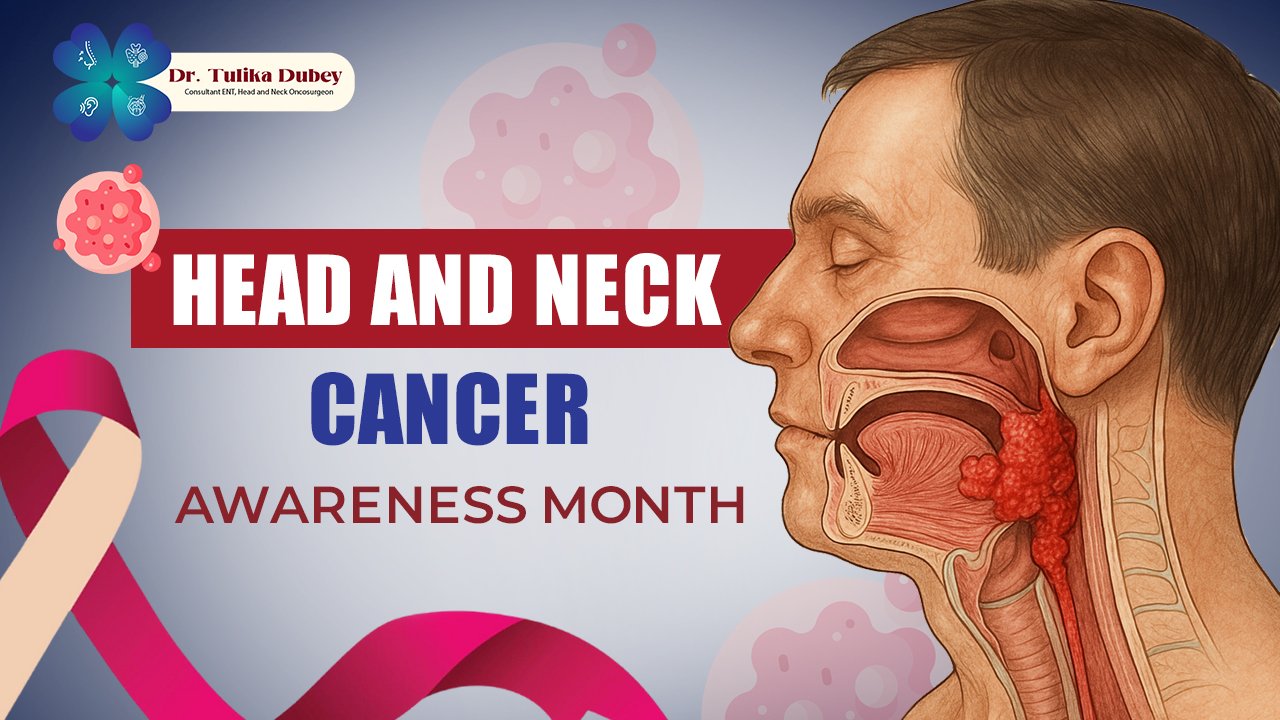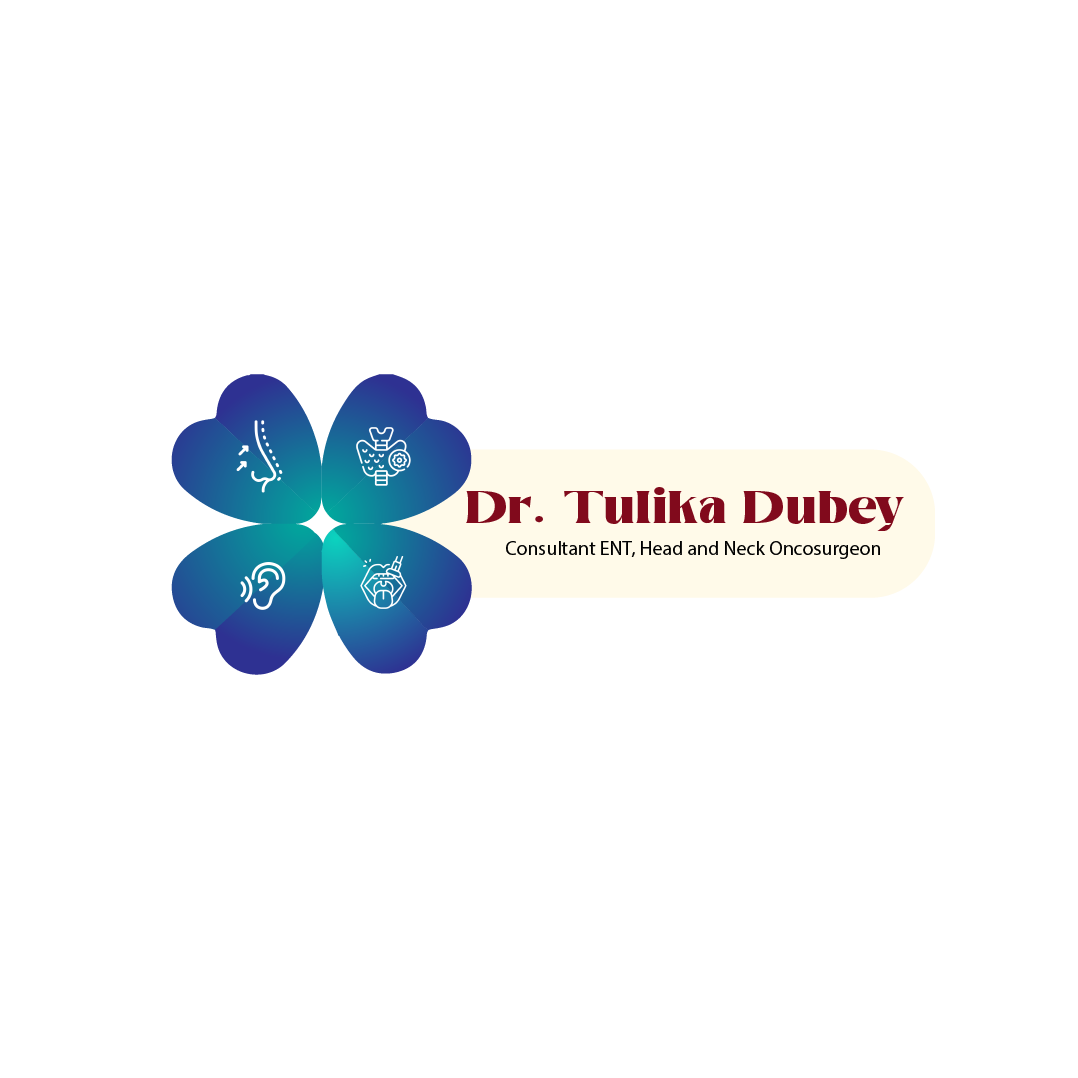Every April, the world recognizes Head and Neck Cancer Awareness Month. It’s more than a ribbon or a headline it’s a call to understand, prevent, and support those affected by a complex group of cancers that impact the most visible and personal parts of our bodies. As a psychologist deeply involved in cancer care, I, Dr. Tulika Dubey, aim to shed light not only on the disease but also on the emotional toll it takes and the ways we can build resilience.
What Is Head and Neck Cancer?
Head and neck cancers refer to a category of cancers that begin in the mouth, throat, voice box, nasal cavity, sinuses, and salivary glands. These cancers can be aggressive and life-altering. Most are squamous cell carcinomas and are commonly linked to tobacco use, alcohol consumption, and human papillomavirus (HPV) infection.
Common Types Include:
- Oral cavity cancer
- Laryngeal cancer
- Pharyngeal cancer
- Nasal and sinus cancer
- Salivary gland cancer
Symptoms to Watch For:
- A sore in the mouth that doesn’t heal
- Persistent sore throat or hoarseness
- Difficulty swallowing
- A lump in the neck
- Ear pain without infection
Early detection is critical. Many people overlook or normalize symptoms, leading to late-stage diagnoses that are harder to treat.
Why Awareness Matters
According to the World Health Organization, over 930,000 new cases of head and neck cancer are diagnosed globally each year. In India alone, these cancers make up nearly 30% of all cancer cases, primarily due to high tobacco use. Late diagnosis remains a major issue, not just medically but psychologically.
When a diagnosis finally comes, patients often face a double blow: the medical reality and the emotional chaos. Disfigurement, voice loss, and the fear of social rejection are common. That’s where mental health support becomes critical.
The Psychological Impact of Head and Neck Cancer
As someone who works closely with cancer patients, I’ve witnessed how deeply head and neck cancer affects mental health. The visible nature of the disease means patients often face:
- Body image disturbances
- Social withdrawal
- Depression and anxiety
- Post-traumatic stress
- Fear of recurrence
The stigma around appearance and the voice, especially in social and professional settings, can erode self-esteem. Patients sometimes stop engaging in conversations, avoid going out, or become overly conscious of how they look or sound.
My Approach: Mind and Body Healing
Healing isn’t just physical. In my sessions, I focus on integrating psychological therapy with the medical journey. Some key strategies I use include:
- Cognitive Behavioral Therapy (CBT): Helps patients challenge negative thoughts and reframe their experience.
- Mindfulness-Based Stress Reduction (MBSR): Encourages present-moment awareness to reduce anxiety.
- Guided imagery and relaxation: Especially helpful before surgery or radiation.
- Family therapy: Because caregivers also need support.
Real Stories, Real Struggles
I worked with a 38-year-old patient who underwent surgery for oral cancer. The physical transformation shattered his confidence. We spent weeks rebuilding his self-image through mirror exposure therapy, gradual social reintegration, and emotional regulation. He now advocates for early detection in his community.
This kind of transformation isn’t rare it’s possible when the psychological dimension is addressed alongside the physical one.
How Families and Caregivers Can Help
Support from loved ones can make a world of difference. Here’s what I recommend:
- Listen more, fix less: Sometimes patients just need to vent.
- Normalize emotions: Sadness, anger, fear they’re all valid.
- Encourage small victories: Celebrate every step, even just leaving the house.
- Watch for red flags: Social withdrawal, prolonged sadness, or anger can signal depression.
- Get professional help: If you’re unsure how to help, a psychologist can guide you.
What You Can Do This Awareness Month
Raising awareness isn’t just for doctors or survivors. Everyone can contribute:
- Share educational content on social media
- Encourage loved ones to attend screenings
- Support NGOs or local health drives
- Attend or organize awareness events
- Start conversations about mental health and cancer
The more we talk about it, the less power stigma has.
Final Thoughts from Dr. Tulika Dubey
Head and neck cancers don’t just change faces they change lives. But with awareness, early action, and psychological support, we can help patients reclaim their confidence and their lives.
This April, I invite you to be a voice for the voiceless. Whether you’re a survivor, a caregiver, or a concerned citizen, your actions matter.
If you or someone you know is navigating this journey, know that you’re not alone. Mental resilience is treatable, trainable, and transformative.


